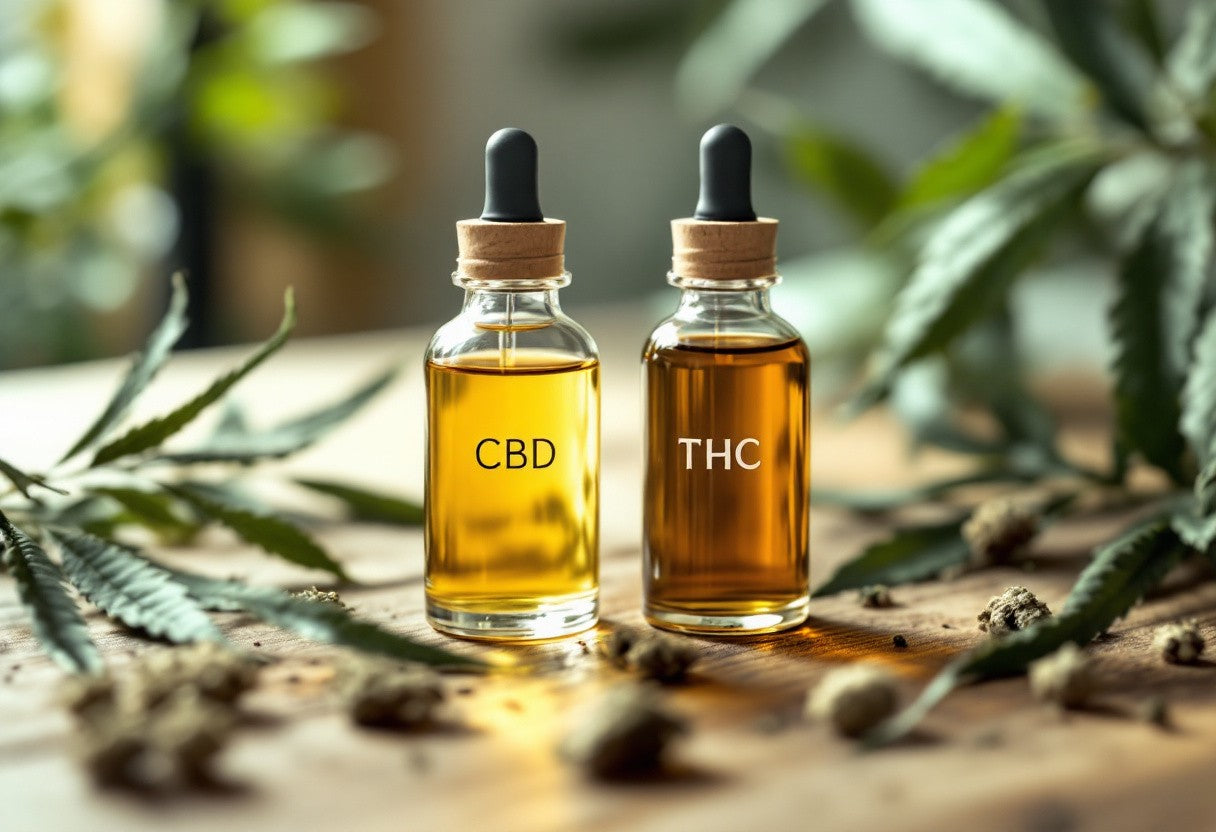In recent years, the conversation surrounding cannabis has become more mainstream, with a growing interest in its potential health benefits. Central to this discussion are two prominent compounds found in the cannabis plant: CBD (cannabidiol) and THC (tetrahydrocannabinol). Many individuals are curious about how they differ and what specific effects they have on the body. Understanding these differences is vital for anyone considering using cannabis-based products.
The basic chemical structure
At their core, CBD and THC share the same chemical formula: 21 carbon atoms, 30 hydrogen atoms, and two oxygen atoms. However, their arrangements differ, leading to distinct characteristics in each compound. This difference in chemical structure impacts how they interact with cannabinoid receptors within the human body, causing varied effects.
This variation in response is primarily because of the different ways each compound connects with CB1 and CB2 receptors. THC binds more closely to CB1 receptors, mainly located in the brain, resulting in psychoactive effects commonly associated with being 'high'. On the other hand, CBD shows little binding affinity for CB1 receptors, which contributes to its non-intoxicating nature.
Psychoactive effects: what makes them different?
The term "psychoactive" is often associated with drugs that alter mental state. In this context, THC is what most individuals think about. It is indeed responsible for the euphoric feeling or "high" experienced when consuming marijuana. This effect is due to THC's direct interaction with the brain's cannabinoid receptors.
Contrary to popular belief, CBD is considered non-psychoactive. This means it does not cause any intoxicating feelings. Despite this designation, it does affect the mind and mood but in a subtler manner compared to THC. It's more accurate to describe CBD as non-intoxicating since its users do not experience the dizziness or euphoria typical of THC consumption.
Understanding therapeutic benefits
Potential medicinal properties of CBD
Many turn to CBD for its potential therapeutic benefits without the high. Numerous studies suggest that CBD can help address various conditions such as anxiety, chronic pain, inflammation, and even certain types of seizures. Its ability to combat these issues without significant side effects has made it popular among those seeking natural alternatives to traditional medicine.
Apart from personal testimonials, clinical research supports the notion that CBD may aid in reducing epilepsy symptoms. It's documented that some patients witnessed a substantial decrease in the frequency of seizures, leading to better quality of life. Additionally, CBD's anti-inflammatory properties make it an attractive option for managing arthritis and other muscle-related problems.
Medicinal advantages of THC
While THC is primarily known for its psychoactive effects, it also offers therapeutic benefits, especially for individuals dealing with severe health issues. Its ability to provide relief from pain and stimulate appetite makes it valuable in palliative care, helping those undergoing treatments such as chemotherapy.
Conditions like glaucoma, PTSD, and multiple sclerosis have shown positive responses to THC use. By increasing dopamine release in the brain, THC improves mood and creates an uplifting sensation, which can be crucial in managing depression and anxiety disorders. However, the possibility of psychoactive experiences can deter some patients from using THC-rich medications.
The legal landscape
One of the pivotal aspects distinguishing CBD from THC is their legal status. In many regions, CBD extracted from hemp plants is legal, provided it contains less than 0.3% THC. This leniency in legislation stems from CBD's non-intoxicating nature, making it less controversial than THC.
Conversely, THC remains under stricter regulation due to its psychoactive and intoxicating effects. While some places allow THC for medical purposes or recreational use, its legality varies significantly across borders. As regulations continue to evolve, it's essential for consumers to stay informed about the laws governing cannabis in their locality.
Interactions with cannabinoid receptors
The ECS, or endocannabinoid system, plays a critical role in regulating physiological processes such as mood, memory, and pain perception. Both CBD and THC interact with this system, albeit in different manners. THC's binding affinity for CB1 receptors accounts for its powerful psychoactive effects.
CBD, however, operates more subtly and indirectly influences the receptors. It may prevent other compounds from interacting with these receptors, potentially altering their effects. For instance, CBD can mitigate some unwanted side effects of THC, such as anxiety or paranoia, by blocking its complete attachment to CB1 receptors.
Choosing between CBD and THC
When determining whether CBD or THC is more suitable, consider personal needs and circumstances. Factors such as desired effects, possible side effects, and local laws will impact this decision significantly. If looking for symptom relief without the high, CBD might be preferable. Meanwhile, individuals needing potent relief from chronic conditions might opt for THC.
It's worthwhile consulting with a healthcare provider to weigh the pros and cons based on individual health profiles, especially given the varying responses individuals have to cannabis products. Engaging in such discussions ensures safe usage and maximizes the therapeutic benefits of either compound.
Availability and product options
The market flooded with diverse CBD and THC products provides numerous choices for consumers. From oils, tinctures, and edibles to topicals and vape pens, there is something for everyone. Understanding the differences in product types can guide purchasing decisions and usage practices.
For novice consumers, beginning with products containing only CBD could be advantageous. These offer a way to understand one’s reaction to cannabinoids without the risk of psychoactive outcomes. Those comfortable with the effects of THC have options in both standalone and combined CBD-THC products, letting users balance their intake according to preference.
The future of cannabis research
Research into the cannabis plant continues to grow, offering a promising glimpse into unprecedented medical applications. With greater public interest and loosening restrictions, more scientific inquiries explore the full spectrum of uses for both CBD and THC. This evolving understanding propels the development of newer, innovative products addressing broader health challenges.
As societies increasingly embrace cannabis’s medicinal potential, knowledge about these compounds could lead to groundbreaking treatment methods. Therefore, staying informed about ongoing studies helps in appreciating their wide-ranging implications and future contributions to healthcare.



